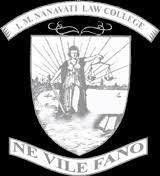Introduction of the course
The Master of Legislative Laws (LLM) is a two-year postgraduate degree in law. By undertaking in-depth study in a specific area of law, LLM students gain a full understanding of that field. The Master of Laws programme has several specialisations, including Criminal Law, International Law, Corporate Law, and Business Law.
The sections below will discuss more about LLM courses.
Today, as the scope of legal matters has broadened and numerous sectors seek legal specialists in their fields, LLM speciality courses have grown in popularity with students. The specialisation courses allow individuals to focus on a certain sub-domain of law.
LLM Highlights
|
Particulars |
Details |
|
LLM Full Form |
Master of Laws |
|
LLM Course Duration |
2 Years |
|
LLM Course Eligibility |
The basic eligibility is to have a graduation degree from a recognized college. |
|
Specialisations |
Criminal Law, Constitutional Law, Business Law, etc. |
|
LLM Course - Mode of Study |
Full-Time LLM Distance LLM Executive LLM(3 years) |
|
LLM Entrance Exam |
AILET, CLAT PG, LSAT, MHCET, AP LAWCET |
LLM Eligibility Criteria:
Candidates who wish to pursue Master of Laws are required to complete the following qualifying conditions, as listed below.
- Should have qualified LLB or Bachelor of Law with at least 50% aggregate marks.
- The minimal age to pursue a Master of Laws is 17 years or older.
LLM Courses and Specialisations
LLM degrees are offered in a variety of fields, allowing for different specialisations. The major specialisations are discussed below. The table provides information about numerous LLM curriculam.
|
Patent Law |
|
|
Company Law |
Tax Law |
|
Mergers and Acquisition Law |
|
LLM Syllabus
LLM entrance exam syllabuses differ depending on the exact test you are taking, but they often cover a wide range of legal, logical, and general knowledge subjects. Here's a breakdown of common sections that you might find in these LLM entrance exams:
Note: Syllabus may vary according to the institutes/Colleges/Universities
|
LLM International Law |
|
|
LLM Human Rights |
|
|
LLM Corporate Law |
|
|
LLM Constitutional Law |
|
|
LLM Taxation Law |
|
|
LLM Environmental Law |
|
LLM Entrance Exams
There are numerous entrance tests for LLM in India, however some of the most common ones include:
Common Law Admission Test (CLAT): The Common Law Admission Test (CLAT) is a national-level exam administered by the Consortium of National Law Universities (NLUs) for admission to postgraduate law programs at 22 NLUs and other universities.
Law School Admission Test (LSAT): The Law School Admission Test (LSAT) is an internationally standardized test administered by the Law School Admission Council (LSAC) for admission to law schools in India and around the world.
All India Law Entrance Test (AILET): The All India Law Entrance Test (AILET) is another national-level exam administered by the National Law University of Delhi (NLU Delhi) for admission to its LLM curriculum.
Delhi University LLM Entrance Test (DU LLM): The University of Delhi administers the Delhi University LLM Entrance Test (DU LLM), a university-level examination, to candidates seeking admission to its LLM curriculum.
SLS AIAT Exam: Symbiosis International University offers an entrance exam for postgraduate LLM degrees. It's a starting point for LLM courses offered by SLS in Noida, Hyderabad, Nagpur, and Pune. The examination measures your legal aptitude, thinking, writing abilities, and familiarity with current events. It is administered online in a home-based remote proctored format.
TISS National Entrance Test (TISSNET): The Tata Institute of Social Sciences (TISS) administers the TISS nationwide Entrance Test (TISSNET), a nationwide exam, to candidates seeking admission to its postgraduate programmes, which includes the LLM.
Employment and career opportunities
Law is one of the recession-proof professions, with opportunities available in both the public and private sectors. Skilled LLM graduates are also hired for private practice and earn high salaries by practicing in various courts across the country.
Some of the top recruiters who hire new Master of Laws grads are listed below.
|
Shardul Amarchand Mangaldas & Co. |
AZB & Partners |
Phoenix Legal |
|
DSK Legal |
Desai & Dewanji |
Trilegal India |
|
Sagar Associates |
Vaish Associates |
J Sagar And Associates |
|
Talwar Thakore & Assoc |
Luthra & Luthra Law Offices |
Economic Laws Practice |
|
Anand & Anand |
Khaitan & Co. |
S & R Associates |
LLM Career and Scope
Candidates who complete an LLM study can continue their education by pursuing an MPhil or PhD in Law. However, if candidates desire to pursue a career in law, they might look at the job profiles listed below. Aspirants are informed that in order to practise law in India, they must pass the All India Bar Examination (AIBE).
|
Job Profiles |
Job Description |
|
Advocate |
An advocate often works for himself and takes on issues for persons who seek legal assistance with difficulties or complaints that they believe they are incapable of fighting for. |
|
Solicitor |
Individuals with this job description typically specialise in a certain field of law, such as taxation, litigation, family law, or real estate. Solicitors provide legal assistance to both private and commercial customers. |
|
Judge |
Being a judge is one of the most prestigious and renowned careers in India. A judge sits at the pinnacle of the judicial system, and it is his obligation to render verdict on any trials or cases that come before him. |
|
Notary |
A notary's primary responsibility is to act as a witness to the signing of various legal documents in order to confer legal credibility. |
|
Legal Document Reviewer |
A Legal Document Reviewer/Derivative's job includes settling and reviewing various types of legal documents, as well as drafting answers and auxiliary documents. |
|
Professor |
A professor imparts expertise on all of the disciplines taught in law schools and colleges. |
|
Oath Commissioner |
In such a job profile one is authorised to verify affidavits. |
|
NGO Worker |
After LLM you can be a social worker to help the society with your knowledge. |
Courses after LLM
After finishing an LLM degree, one might pursue a PhD in Law or LLD, also known as Doctor of Law. There are various universities in India that offer LLD admissions, including Nalsar Hyderabad, IIT Kharagpur, and NLU Jodhpur.
The eligibility requirements for pursuing LLD are:
- Students should have cleared LLM with a minimum of 55% aggregate marks or equivalent CGPA.
- Students should have to take entrance tests administered by several universities.
- Certain institutions require some job experience before enrolling students in LLD courses.
FAQs
1. Can I do LLM without LLB?
No, it wouldn’t be possible for a student to pursue LLM courses if he/she does not have a Bachelor’s degree in Law, as it provides them a background to be able to carry your advanced studies at master level.
Hence, to have some knowledge of law and legal studies it is important to have an LLB degree to pursue LLM.
2. What is LLM full form?
The full form of LLM is Master of Law. Some people get confused and think it's a Master of Laws, but LLM is a master of law degree. It's full form is not Master of Laws.
3. Which is the best college for LLM in India?
According to NIRF Rankings, some of the top LLM colleges in India are:
- National Law School of India University (NLSIU), Bangalore
- National Law University (NLU), New Delhi
- IIT Kharagpur
- Nalsar University of Law, Hyderabad
- Symbiosis Law School, Pune
- Jamia Millia Islamia, New Delhi
- National Law Institute University, Bhopal
4. What are the top universities in India offering 1 year LLM courses?
Below are mentioned some of the top law colleges and universities in India offering 1 year LLM course:
- Jindal Global Law School, Sonipat
- National Law Schools/Universities of Bangalore, Hyderabad, Delhi, Kolkata, Bhopal, Jodhpur, Raipur, Gandhinagar, etc.
- Indian Law Institute, Delhi
- Tata Institute of Social Sciences, Mumbai - LLM in Access to Justice
- Azim Premji University, Bangalore - LLM in Law & Development
- TERI University, New Delhi - LLM in Environment & Natural Resources Law
5. Which books are recommended for CLAT LLM entrance exam?
Some recommended books for the CLAT LLM entrance exam include the following:
- CLAT LLM Entrance Exam Guide by Pankaj Jain
- Legal Aptitude for the CLAT and other Law Entrance Examinations by Bhardwaj
- A Modern Approach for Logical Reasoning by R.S Aggarwal
- Word Power Made Easy by Norman Lewis
- Analytical and Logical Reasoning by A.K. Gupta
These books provide comprehensive coverage of the syllabus and practice questions to help candidates prepare effectively.



